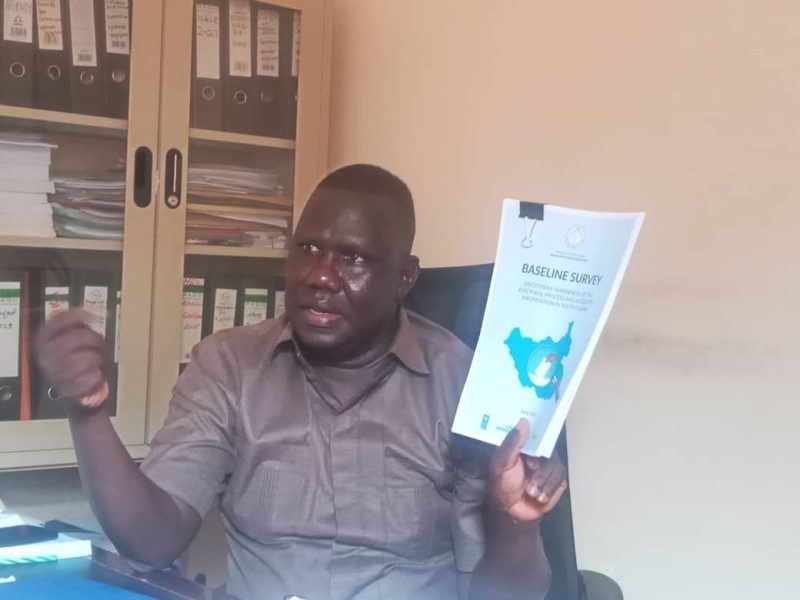
With less than 17 months remaining until South Sudan’s national elections in December 2026, the National Election Commission (NEC) has raised concerns that 80% of the population remains unaware of the electoral process.
NEC has vowed to intensify civic education efforts to ensure public understanding and participation.
Speaking to the media, NEC Secretary Gabriel Bol Deng emphasized the urgent need for widespread civic education.
“Despite our commitment to raising awareness, 80% of the population is still uninformed about the election process,” Bol stated.
Currently, NEC is rolling out training programs aimed at educating citizens on voter rights, democratic principles, and the importance of elections. The commission has developed a training manual to be distributed across all states, focusing on strengthening institutional capacity and empowering voters.
“We have strengthened the institution, and now we are also going to empower the citizens by providing them with knowledge on how to choose their leaders and how democracy works,” Bol said.
Bol emphasized that both national and state-level authorities must prioritize civic and voter education. He called on the media and civil society to support NEC’s efforts in disseminating electoral information across communities.
“What we are doing is really to strengthen institutions at all levels. Now, the next step is civic and voter education,” he added.
South Sudan’s political landscape remains fragile, with ongoing challenges including political instability, infrastructure limitations, and resource constraints. The country has struggled to hold democratic elections since gaining independence in 2011.
The 2018 Revitalized Peace Agreement initially planned elections after the transitional period, but delays have pushed them to December 2026. NEC, mandated by the Constitution and the National Elections Act of 2012 (as amended), remains responsible for overseeing the electoral process and implementing reforms to ensure transparency, fairness, and inclusivity.
Political divisions have further complicated electoral preparations, particularly following the detention of the First Vice President. The Sudan People’s Liberation Movement/Army–In Opposition (SPLM/A–IO), the country’s major opposition party, has faced internal splits, making political consensus difficult.
Despite these challenges, NEC has reaffirmed its commitment to ensuring free and fair elections in 2026. Bol urged all stakeholders to join efforts in preparing the electorate and fostering democratic participation.

